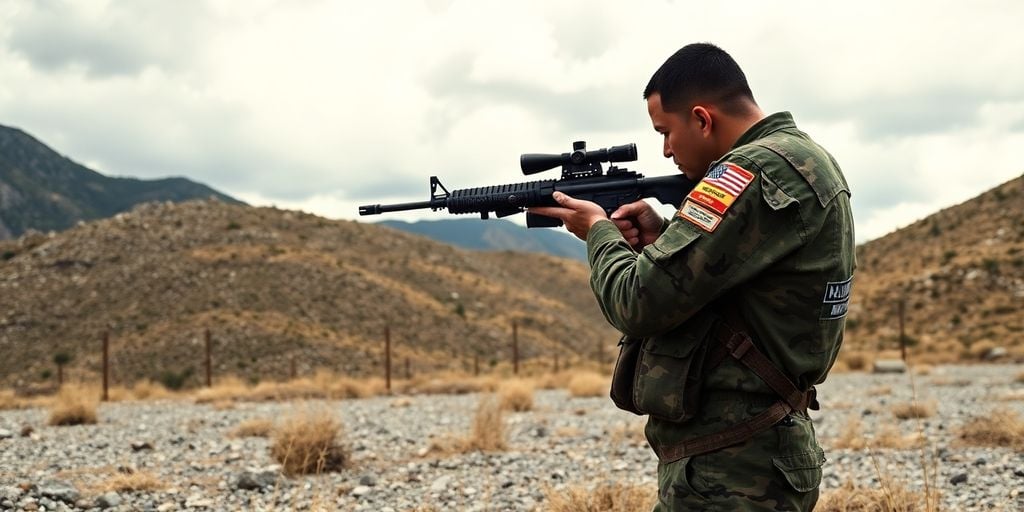Russian intelligence services have been accused of establishing mercenary training camps in Serbia and Bosnia and Herzegovina. These camps allegedly prepared Moldovan nationals for a coup attempt aimed at destabilizing Moldova, particularly during its 2024 presidential election. The operation involved paramilitary training, including drone operations and riot tactics, with participants reportedly paid in cryptocurrency.
Allegations of Russian-Backed Destabilization
Joint investigations by the Balkan Investigative Reporting Network (BIRN) and CU SENS have revealed details of alleged Russian-backed training camps in the Balkans. These camps were reportedly used to train Moldovan citizens to disrupt the country’s political landscape, specifically targeting the 2024 presidential election.
- Training Locations: Camps were identified in Radenka, Serbia, and in the Republika Srpska entity of Bosnia and Herzegovina.
- Recruitment and Compensation: Moldovan nationals were recruited, often through associates, and promised $300-$500 for a 10-day intensive course, paid in cryptocurrency. Recruits were required to surrender their phones and passports.
- Training Curriculum: The training included drone operations, riot tactics, crowd psychology, weapons handling, and explosive device creation.
- Instructors: Instructors have been linked to Russia’s Wagner Group and individuals sanctioned by the European Union.
Key Figures and Arrests
Several individuals have been implicated in the alleged plot, leading to arrests and ongoing investigations.
- Maksim Rosca: A Moldovan national who participated in the training, now a prosecution witness. He revealed details about the training and payment structure.
- Anatoliy Pryzenko: Accused of recruiting Rosca and organizing the training. He was arrested in February 2025 and is under EU sanctions for previous destabilizing activities in France.
- Aleksandr Bezrukovnyi: A Russian citizen arrested in Bosnia on suspicion of organizing training centers, wanted by Polish law enforcement for sabotage.
- Other Trainees: Three individuals, Vladimir Harcevnicov, Aliona Gotco, and Ludmila Costenco, were arrested at the Moldovan-Romanian border with disassembled drones, VR headsets, radio equipment, and explosive manuals.
Broader Russian Influence in the Balkans
This alleged operation in Moldova is part of a broader pattern of Russian political warfare in the Balkans, aimed at strengthening Moscow’s regional influence and distracting Western powers.
- Serbia and Bosnia and Herzegovina: Russia has cultivated alliances with leaders like Aleksandar Vučić in Serbia and Milorad Dodik in Republika Srpska to destabilize fragile states.
- Information Warfare: Russia utilizes information and psychological warfare, including state media outlets like Sputnik and RT, to spread narratives and conspiracy theories.
- Religious Influence: The Russian Orthodox Church is used to manipulate the Serbian Orthodox Church, fostering ethnic discord and promoting pro-Russian policies.
International Response and Denials
While Moldovan authorities have actively investigated and made arrests, some Balkan officials initially denied the existence of such camps.
- Moldovan Authorities: The Intelligence and Security Service (SIS) and the Prosecutor for Organised Crime and Special Cases (PCCOCS) have confirmed the plot and are pursuing legal action.
- Bosnian Security Ministry: Initially denied the existence of training camps in October 2024, stating no official communication was received from Moldova. However, Bosnian authorities have since opened their own case.
- Pro-Russian Officials: Some pro-Russian officials in Moldova and Republika Srpska have denied the allegations, claiming a lack of evidence and attributing them to political motivations.
Sources
- Russia Trained Mercenaries in the Balkans to Stage Coup in Moldova — UNITED24 Media, UNITED24 Media.
- How the Balkans became a training ground for Russian-backed militants, Європейська правда.
- Disruptors: Inside Russia’s Balkan Training Camps for Moldovan ‘Destabilisation’, Balkan Insight.
- Will Russia’s Political Warfare Operations in the Balkans Fuel Its Next War?, Foreign Policy Research Institute.






